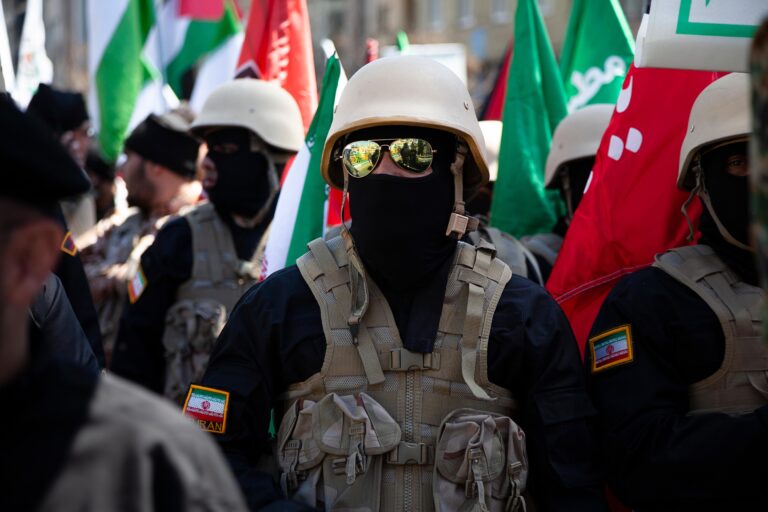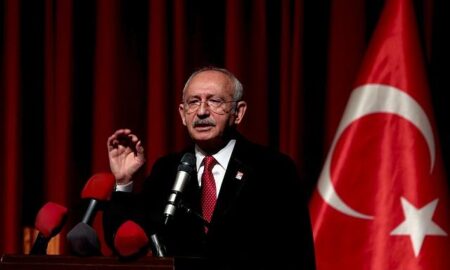In recent years, Europe has witnessed a surge in covert operations linked to Iranian state actors, raising alarm among security agencies and policymakers. The International Centre for Counter-Terrorism (ICCT) has released a comprehensive report shedding light on the criminal networks underpinning Tehran’s external activities across the continent. This article explores the findings, revealing how Iran’s blend of espionage, sabotage, and illicit financial schemes operate under the radar, challenging Europe’s security landscape and prompting urgent calls for coordinated countermeasures.
Iranian Covert Activities in European Cities Exposed
Recent investigations have unveiled a complex web of Iranian covert operations within major European urban centers. These activities extend beyond mere intelligence gathering, implicating networks involved in illicit financial transactions, cyber espionage, and the orchestration of targeted harassment against dissidents residing abroad. Authorities in several countries have traced these undertakings to operatives linked with Tehran’s Revolutionary Guard Corps, exposing the extent to which state-sponsored espionage is embedded within ostensibly benign diplomatic and cultural initiatives.
Key elements identified in the crackdown include:
- Use of front companies masking surveillance and recruitment efforts
- Coordination with local criminal groups to facilitate money laundering
- Deployment of advanced cyber tools to infiltrate political institutions
- Systematic intimidation campaigns aimed at dissident communities
These findings are consolidated in the table below, summarizing the primary operational modes detected across affected cities:
| City | Primary Activity | Modus Operandi | Status |
|---|---|---|---|
| Berlin | Cyber Espionage | Phishing & Malware | Under Investigation |
| Paris | Financial Crimes | Money Laundering | Active Probes |
| Amsterdam | Surveillance | Front Companies | Disrupted |
| London | Intimidation | Harassment Campaigns | Ongoing |
Links Between Iranian Intelligence and Organized Crime Rings
Iranian intelligence agencies have increasingly leveraged organized crime networks to extend their reach across Europe. These alliances are not merely coincidental but strategic partnerships that facilitate covert operations, including illegal arms trafficking, drug smuggling, and cyber espionage. By embedding themselves within established criminal rings, Iranian operatives gain access to logistical support and cover identities, enabling them to navigate hostile environments with reduced risk of detection. The blurred lines between state intelligence missions and criminal enterprise pose serious challenges for European law enforcement.
The table below outlines notable instances where Iranian intelligence efforts intersected with organized crime activities in key European countries, illustrating the operational synergy between these two entities:
| Country | Criminal Activity | Intelligence Objective | Known Outcome |
|---|---|---|---|
| Netherlands | Drug Trafficking | Funding Covert Operations | Multiple arrests, disrupted funding lines |
| Germany | Money Laundering | Finance Espionage Networks | Bank seizures and asset freezes |
| Belgium | Arms Smuggling | Equip Militant Proxies | Confiscation of illegal weapons |
| France | Cybercrime | Gathering Political Intelligence | Identification of cyber cells |
Impact on Regional Security and Diplomatic Relations
The Iranian external operations in Europe have significantly altered the regional security landscape, heightening tensions between European states and Tehran. These covert activities, often involving espionage, surveillance, and targeted intimidation, have led to increased mistrust among European nations. Intelligence-sharing mechanisms have been strained, and security agencies across the continent are now forced to enhance countermeasures to prevent further infiltration. Key implications include:
- Heightened vigilance at diplomatic missions and public events
- Expanded counter-intelligence collaboration across member states
- Diversification of threats combining conventional espionage with criminal networks
Diplomatic relations have also been put under pressure, reflecting the challenge of balancing engagement with containment. European governments have had to navigate the fine line between imposing sanctions and maintaining dialogue, often resulting in fluctuating diplomatic stances. This dynamic is further complicated by Iran’s use of criminal channels, which blur the lines between state and non-state actors, creating ambiguity in international law enforcement cooperation. The table below summarizes the recent shifts in diplomatic responses:
| Country | Diplomatic Action | Security Measure |
|---|---|---|
| Germany | Expulsion of diplomats | Increased border controls |
| France | Sanctions on Iran-linked entities | Enhanced cyber surveillance |
| Netherlands | Public condemnation & warnings | Joint intel task force participation |
Strategies for Enhanced Counter-Terrorism Collaboration in Europe
Strengthening intelligence sharing mechanisms stands at the forefront of effective counter-terrorism efforts across Europe. Collaborative frameworks such as Europol and Interpol need to be further empowered with real-time data exchange capabilities, enabling swift identification and disruption of Iranian external operations. This requires a unified approach where member states not only share threat assessments but also harmonize legal procedures to tackle cross-border criminal networks with agility. Investment in joint training programs will enhance the capacity of law enforcement agencies to recognize and counter sophisticated tactics employed by operatives engaged in illicit activities.
Equally critical is the development of a coordinated strategy that involves diplomatic engagement alongside security cooperation. Addressing the broader geopolitical factors that facilitate these external operations demands a multifaceted response involving:
- Enhanced border security protocols utilizing advanced surveillance technology.
- Establishment of multilateral task forces focused on dismantling financial and logistical support chains.
- Promotion of community outreach initiatives to counter radicalization and increase public vigilance.
| Key Focus Area | Objective | Outcome Indicator |
|---|---|---|
| Intelligence Sharing | Seamless cross-border cooperation | Reduction in operational lead times |
| Joint Training | Standardized response protocols | Increased arrest and disruption rates |
| Community Engagement | Enhanced public awareness | Lower incidence of radicalization |
In Conclusion
In conclusion, Iranian external operations in Europe represent a complex and evolving challenge that transcends conventional diplomatic boundaries. The activities detailed by the International Centre for Counter-Terrorism highlight not only the covert criminal networks underpinning these operations but also the broader implications for European security and international law. As European nations grapple with these multifaceted threats, the need for enhanced intelligence sharing, coordinated law enforcement responses, and robust policy frameworks has never been more urgent. Monitoring and countering these malign activities will remain a critical priority for the region’s security landscape in the years ahead.




